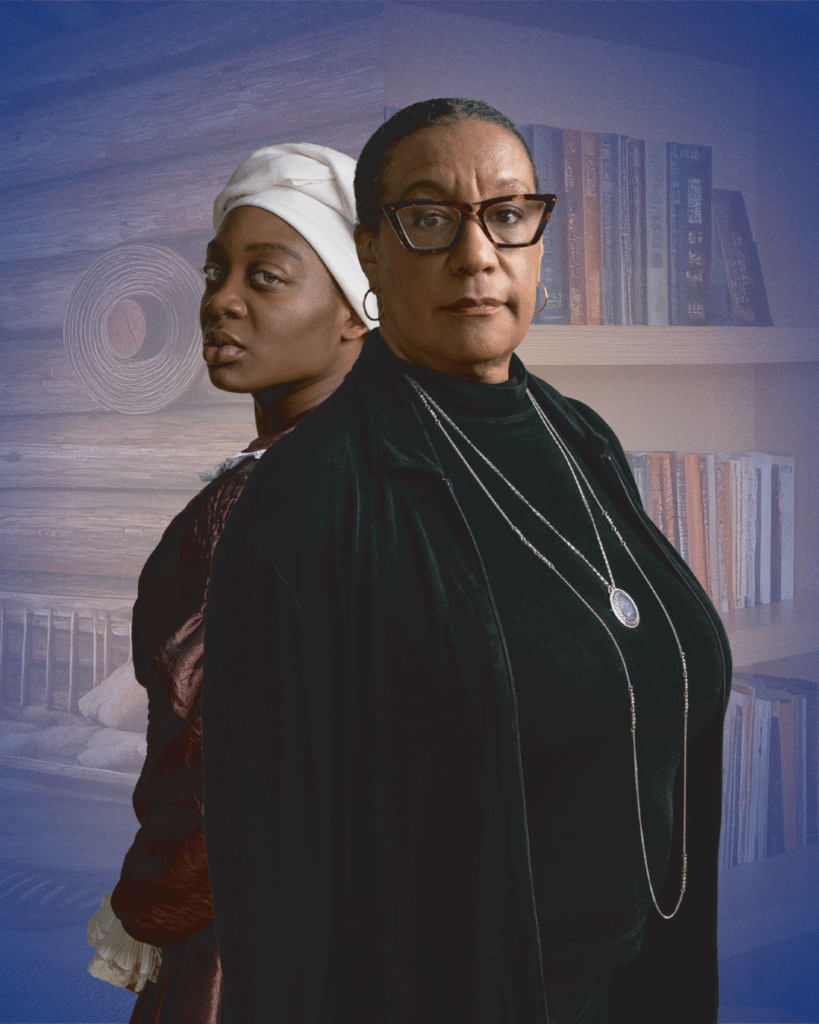By Lexi Silva

Following Arthur Miller’s Death of a Salesman, our American Dream season continues with another contemporary American playwriting giant, Dominique Morisseau’s Confederates.
A play filled with equal parts nail-biting tension and tongue-in-cheek humor, Dominique Morisseau employs comedy as a means of exploring how systemic oppression permeates the past and present through the lens of two Black women on parallel timelines.
In her playwright’s note, Morisseau writes: “If you don’t think this play is funny, you are missing a lot of my play. In fact, this play hits every humorous funny bone, in the past especially, but also in the present.” (Author’s Note).

Throughout Confederates Morisseau employs situational humor to do the work of inviting us in, then provoking critical thought, like a set up to a punchline. As she introduces us to new characters in Sara’s orbit in the past, the following scene shows us how those characters’ traits, perspectives and actions translate into Sandra’s modern timeline. The doubling of supporting roles further emphasizes the dichotomy between humor and discomfort in the play.

As Sara and Sandra navigate challenges, make discoveries, and assert themselves in the face of adversity, we bear witness to absurdity that is oftentimes so frustrating and ridiculous that it necessitates laughter to relieve the tension. Akin to NBC’s hit 2000’s sitcom The Office, (but without the direct eye contact) Morisseau’s characters appeal to us with their subjectivities and imperfections, resulting in laughter that often comes at the cost of secondhand embarrassment.
Morisseau understands that a characters’ perspective is more complex if audiences understand their pains and absurdities to be earnest. There is a striking honesty in the way that each character in Confederates chooses to seek self-preservation that complicates our laughter as the play goes on. As the play moves forward, I notice a blooming curiosity about what lands as funny or painful, and why.

Morisseau asserts that “by the end of the play, we are stealing everyone’s breath. And the only way to get them open enough to achieve this is to find and explore the humor along with the pain.” (‘Authors’ Note’). Divisive, sharp, and fiercely funny, Confederates does steal our breath in gasps and laughter and long exhales.
In the broader context of the ‘24-’25 season, I find that plays we programmed over a year ago are becoming increasingly more relevant as time moves forward. Theatre often proves itself a mirror, and sometimes a smoke signal. It is a cry out into a void that isn’t a void at all if we’ve managed to sell tickets. In a time when headlines read like punchlines and we see the powerful punching down, Confederates is right on time–and comedy is all in the timing.
Don’t miss Confederates by Dominique Morisseau, on stage March 5 – 23, 2025, at PlayMakers Repertory Company.